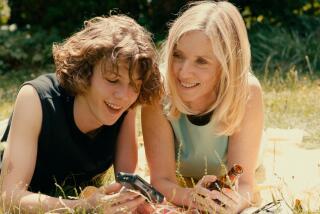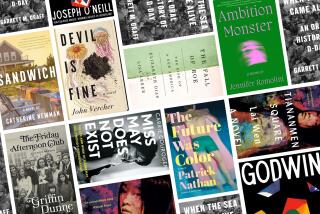FICTION
SUMMER RAIN by Marguerite Duras, translated from the French by Barbara Bray (Scribner’s: $18; 128 pp.) For a reviewer who, inexplicably, hadn’t read anything by Marguerite Duras before, the veteran French novelist and filmmaker projected an image of austerity, if not sternness. What a surprise, then, to find this short novel, based on her 1984 movie “Les Enfants,” to be a delicate, wistful, tender work, verging on sentimentality.
The story, whose roots go back at least to Rousseau, concerns the flowering of genius in unlikely soil: a large, uneducated immigrant family living on welfare in Vitry, a suburb of Paris. The oldest son, Ernesto, learns to read when he picks up a damaged Bible; he learns mathematics and chemistry by eavesdropping outside the schools he refuses to attend.
Ernesto and his family are “natural” people, physically beautiful, unwarped by the society that mostly leaves them alone, capable of deep emotion. They are vulnerable because their love for one another is all they have. The discovery of Ernesto’s genius by a sympathetic teacher, and later by the press, hastens the processes that disperse any family when the children grow up; in particular, it threatens the semi-incestuous love of Ernesto and his equally extraordinary sister Jeanne.
Duras’ methods are austere. She gives us unadorned dialogue, as in a screenplay, and little blocks of description like stage directions. The effect, however, isn’t “minimalist” but mysteriously evocative. Only poetry could make us believe in these people--do we find any Jeannes or Ernestos in journalistic accounts of South Central L.A.?--but Duras has poetry to spare.
More to Read
Sign up for our Book Club newsletter
Get the latest news, events and more from the Los Angeles Times Book Club, and help us get L.A. reading and talking.
You may occasionally receive promotional content from the Los Angeles Times.








